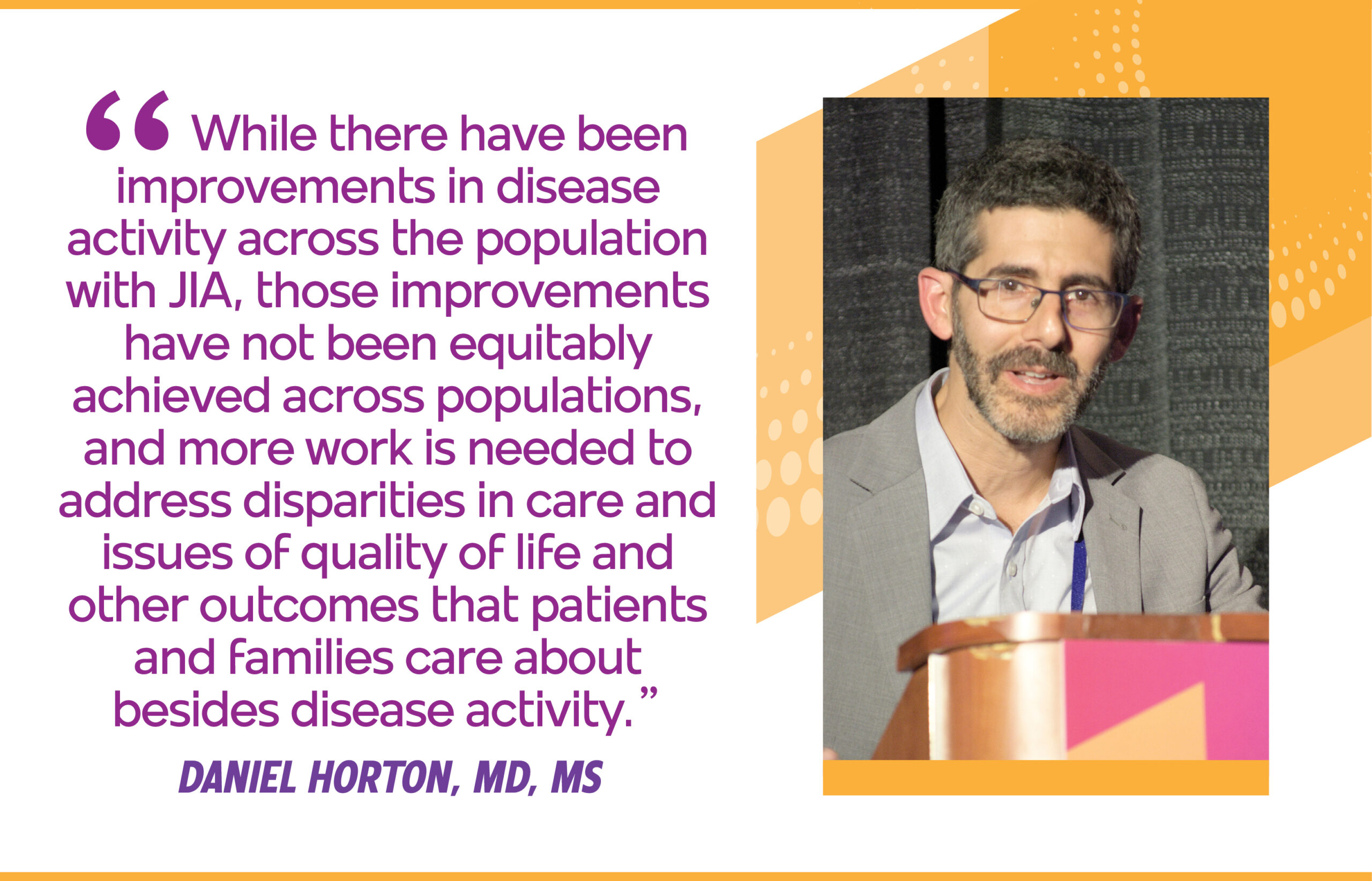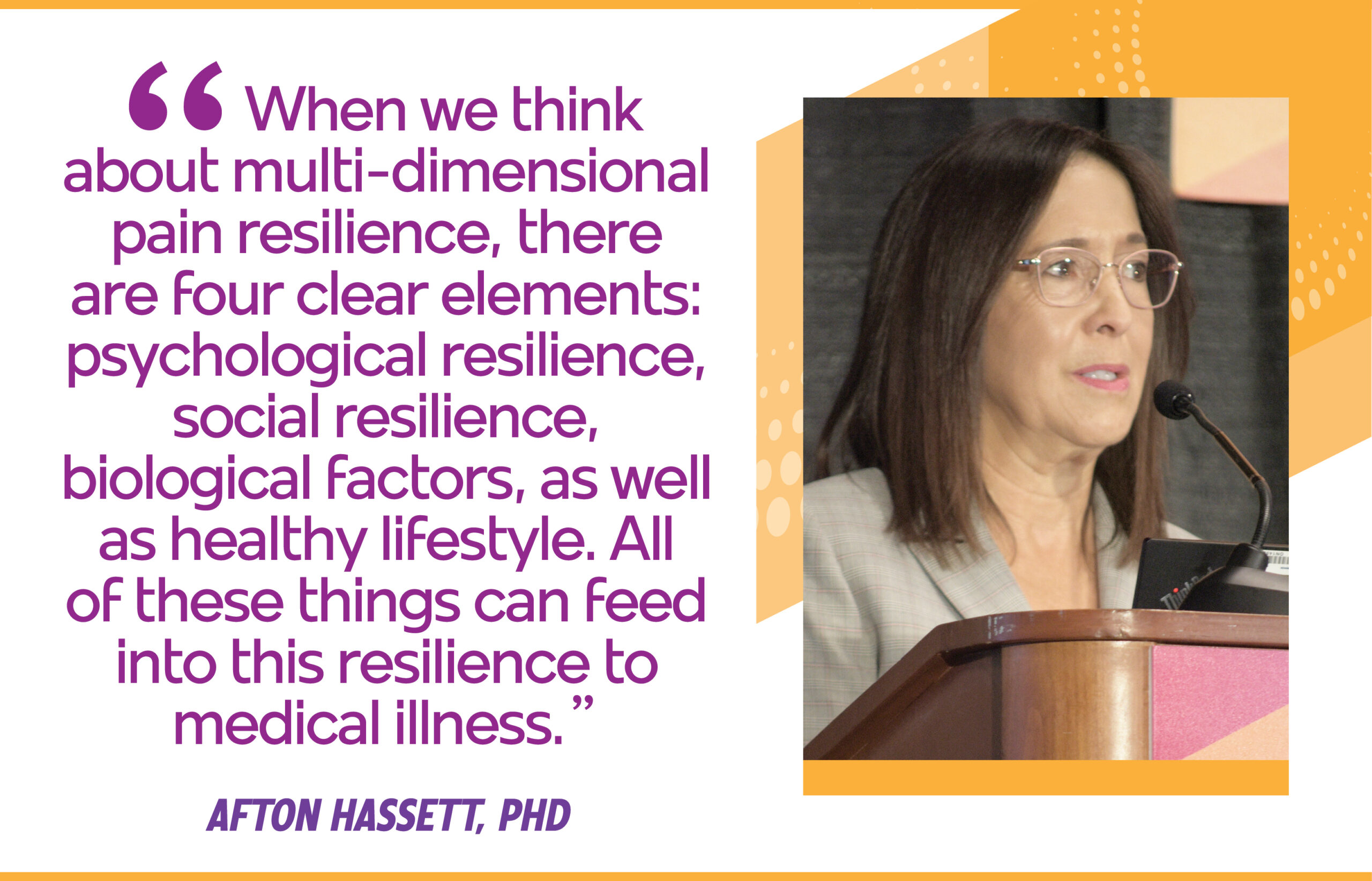
2024
-
Experts Compare JIA Outcomes Across the World
Juvenile idiopathic arthritis outcomes vary greatly across the world, possibly due to genetic factors, referral biases, and differential access to treatment. Daniel Horton, MD, MS, discussed disease variations across North America.
-
Authors Give Overview of the New ACR Lupus Nephritis Guideline
Lead author Lisa Sammaritano, MD, discussed the development of the 2024 ACR guideline for the screening, treatment, and management of lupus nephritis and key recommendations, including a kidney biopsy for patients with suspected disease.
-
State of the Art Lecture Explores Precision Medicine in Systemic Sclerosis
In a discussion on molecular phenotypes and functional response biomarkers in systemic sclerosis, Francesco Del Galdo, MD, PhD, discussed data-driven approaches to managing the clinical manifestations of the disease.
-
Year in Preview Examines Outlook for Biomarkers, CAR-T Therapy, Anti-Obesity Drugs, and Other Emerging Therapies in Rheumatic Disease
Grace Wright, MD, PhD, FACR, and Christopher Ritchlin, MD, MPH, discussed key presentations at ACR Convergence 2024 that highlighted new developments in rheumatology that are most likely to impact patient care and outcomes.
-
Educators Teach Critical Lessons for Turning Academic Projects into Scholarly Successes
Many educators struggle to write effective learning objectives. Rebecca Sadun, MD, PhD, offered tips on how medical educators can create actionable, measurable, observable, and specific learning objectives to help learners succeed.
-
Experts Explain How to Differentiate Serious Infectious Disease from Rheumatic Conditions in Children
Some infectious diseases can mimic rheumatic disorders. In a session on identifying these mimics, Joyce Hui-Yuen, MD, MS, highlighted leprosy, or Hansen’s disease, in children.
-
Panel Defines Environmental Threats in Rheumatic Disease
Toxic chemicals, air pollution, and other harmful substances pose environmental health hazards to people with rheumatic disease. Tamiko Katsumoto, MD, and other experts detailed the impacts of these threats and ways to combat them.
-
Session Highlights New Advances in Lupus Arthritis
Lupus arthritis is a puzzle. The symptoms are familiar, but distinguishing lupus arthritis from other arthritic diseases is an evolving conversation. “The spectrum of lupus arthritis is much wider than what we may have thought of some years ago,” said Anca D. Askanase, MD, MPH.
-
Daltroy Lecture Examines the Psychological Impacts of Living with Rheumatic Disease
Afton Hassett, PhD, delved into the relationship between the psychological impact of rheumatic diseases and their effects on individuals’ physical symptoms and overall well-being. She also discussed effective intervention strategies.
-
ARP Distinguished Lecture: Better Understanding of AI Will Enhance Its Utility for Rheumatologists
Jamie E. Collins, PhD, defined the types of artificial intelligence rheumatologists might encounter, as well as the potential benefits and risks of this quickly developing technology in healthcare applications.









